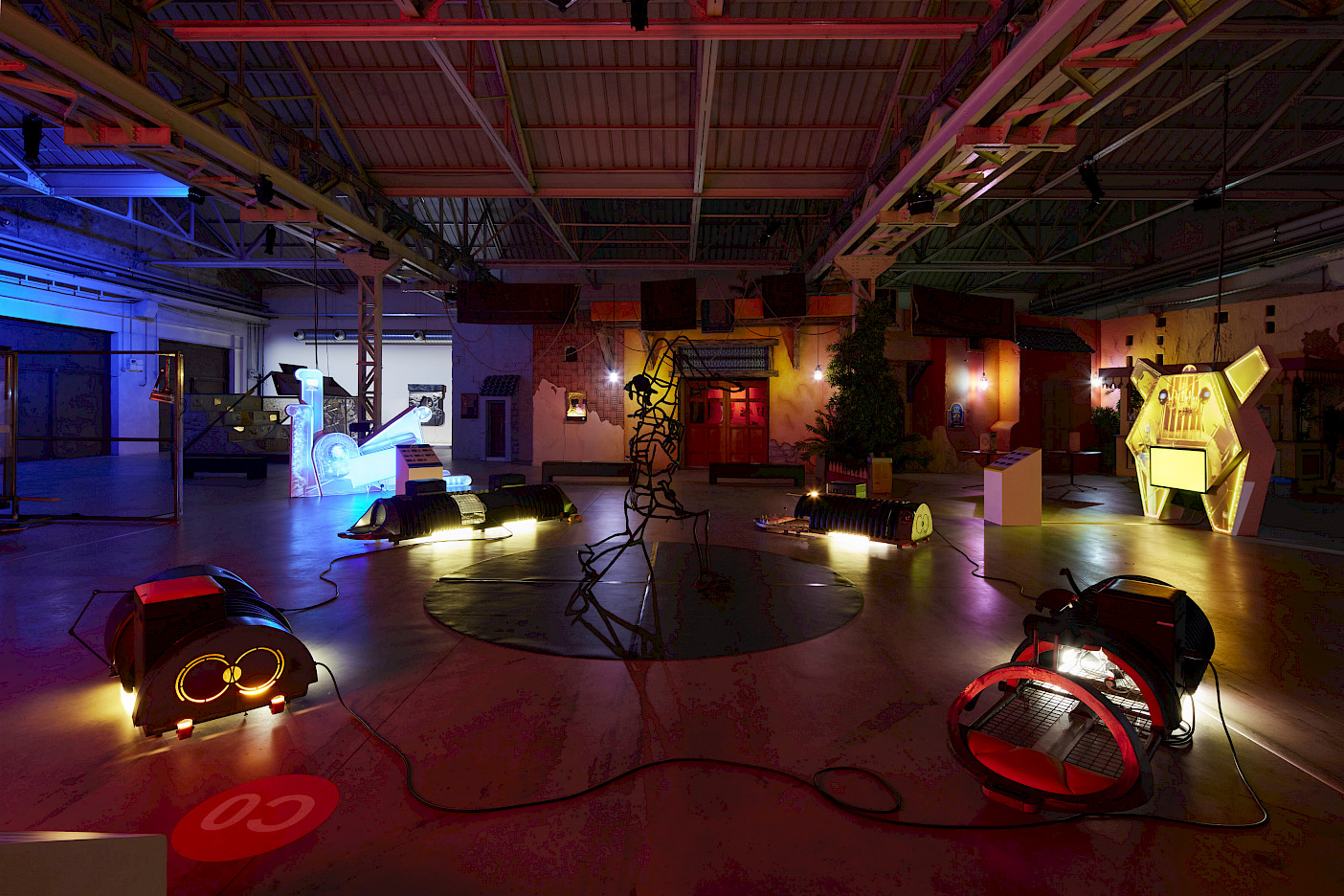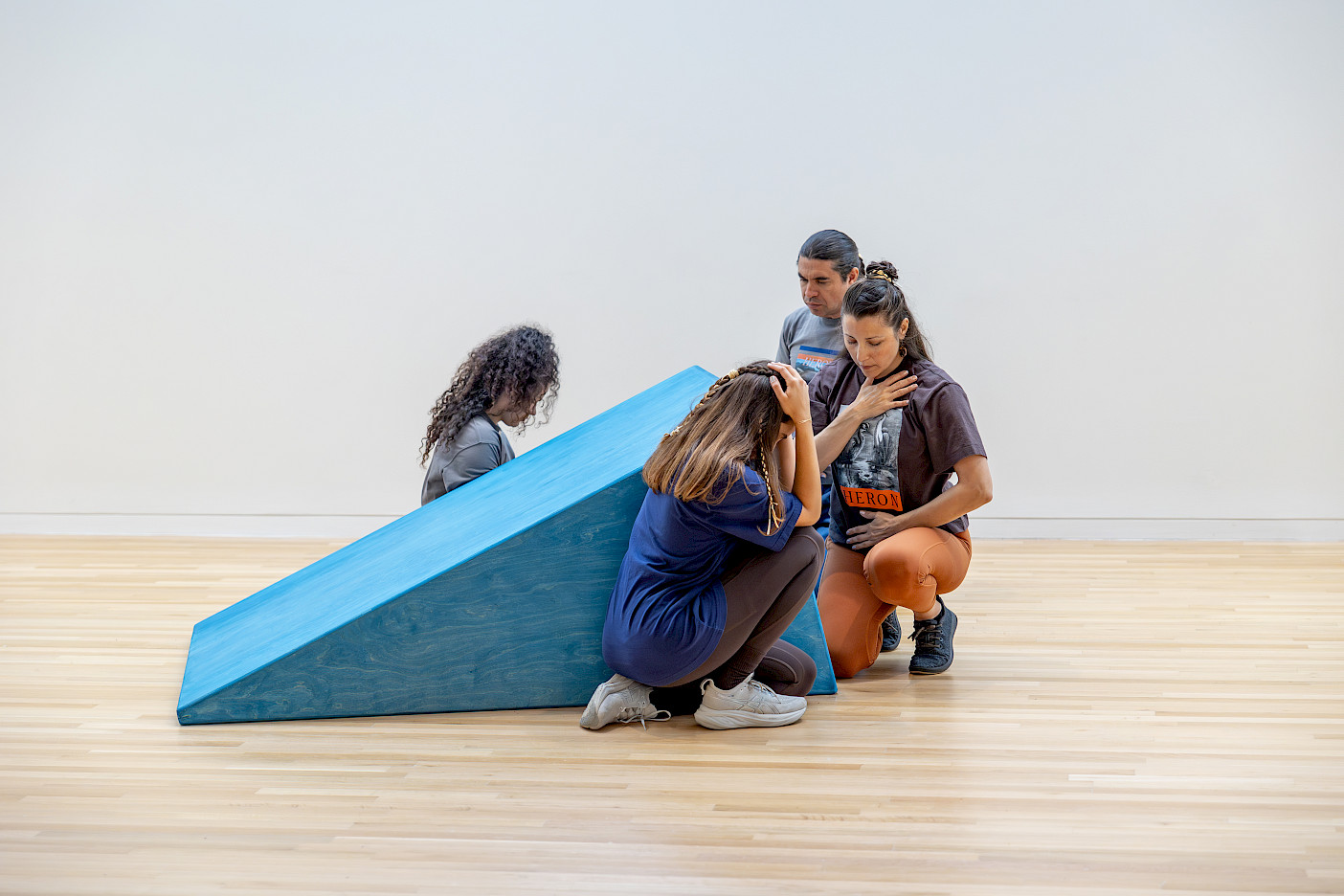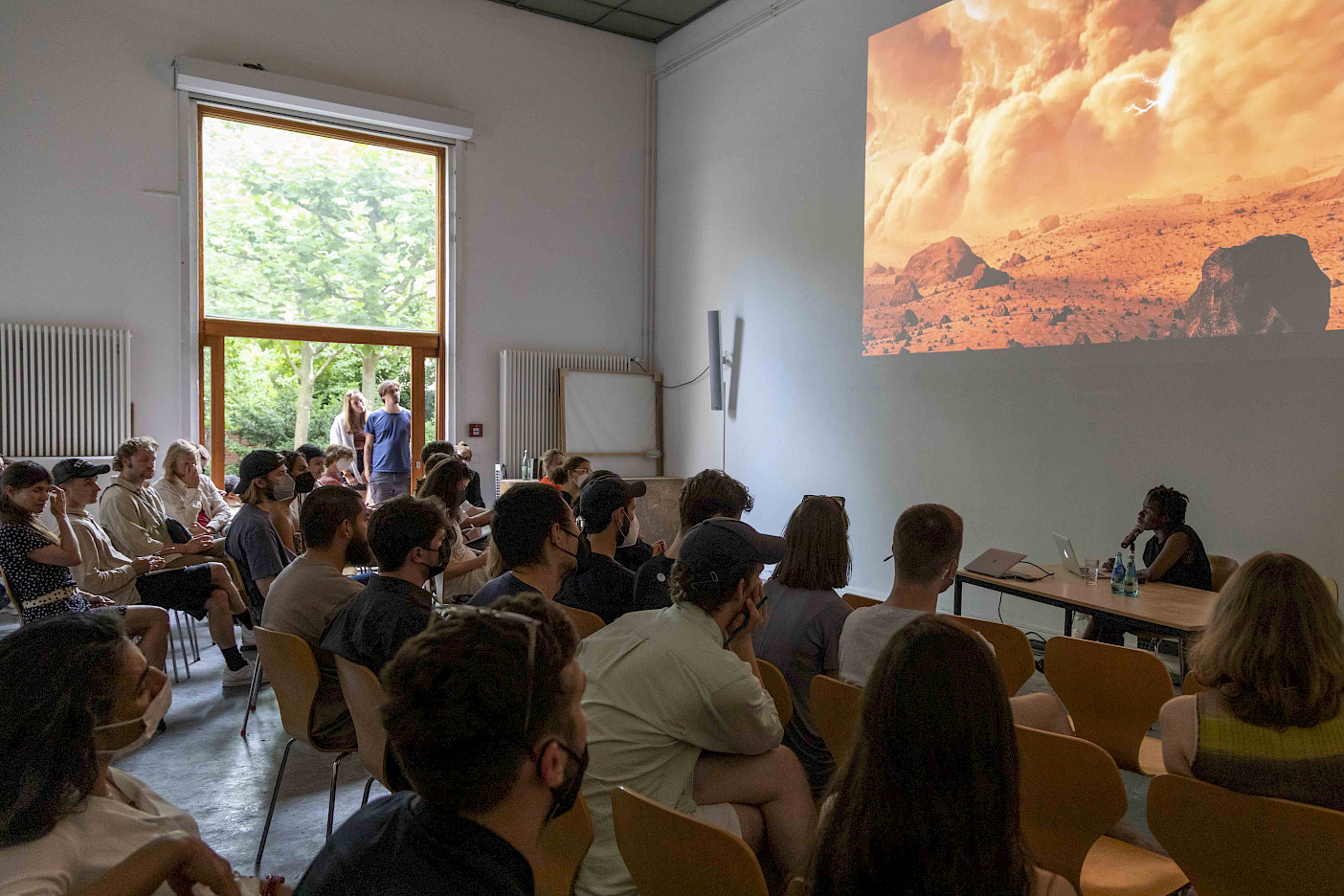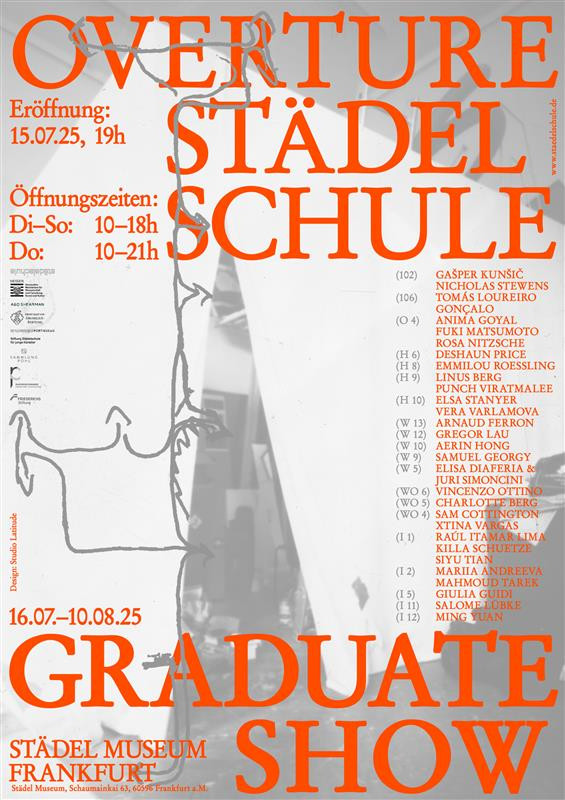Städel Museum, Schaumainkai 63, 60596 Frankfurt am Main
Opening hours: Tue–Sun, 10am–6pm; Thu, 10am–9pm
Opening: Tuesday, July 15, 2025, 7pm–10pm
Today
Tanya Lukin Linklater: _structural_flex_
Lecture, 8 July 2025, 19:00
Ongoing
Summer Semester 2025
Information, 22 April – 25 July 2025
Upcoming
Overture – Graduate Exhibition
Exhibition, 15 July – 10 August 2025, 19:00
Florence Jung: Doing nothing?
Lecture, 24 June 2025, 19:00
Rabih Mroué: Shot/Counter Shot. Rethinking the Reverse
Lecture, 17 June 2025, 19:00
Adir Jan & Emrah Gökmen: On the Shores of the Munzur, on the Shores of the Murat
Concert, 12 June 2025, 20:00
Miloš Trakilović: Love Songs & War Machines
Lecture, 10 June 2025, 19:00
Anna Roberta Goetz: 36. Bienal de São Paulo. Not All Travellers Walk Roads / Of Humanity as Practice
Lecture, 3 June 2025, 19:00
Jimmy Robert
Lecture, 27 May 2025, 19:00
Klein: No Degree, No Budget, No Problem
Lecture (20.5.) Concert (21.5.), 20 – 21 May 2025
Julian Irlinger: Reanimation and Reconstruction
Lecture, 13 May 2025, 19:00
İmran Ayata & Bülent Kullukçu: Songs of Gastarbeiter
Music Lecture, 8 May 2025, 19:00
Enzo Camacho & Ami Lien: Langit Lupa (Heaven Earth)
Screening (5.5.) Lecture (6.5.), 5 – 6 May 2025, 19:00
Helen Marten: Animal Hours
Lecture, 29 April 2025, 19:00
Application: Master of Arts Program in CURATORIAL AND CRITICAL STUDIES
Application, 10 April – 31 May 2025
Semester Break Spring 2025
Information, 14 February – 21 April 2025
Water Cooler Talks 2025
Event, 8 – 9 February 2025
Rundgang 2025
Exhibition, 7 – 9 February 2025, 10:00–20:00
Trisha Donnelly
Lecture, 30 January 2025, 19:00
Kerstin Brätsch: Parasite Painting
Lecture, 28 January 2025, 19:00
Emma Enderby: Curating in and out of Place
Lecture, 14 January 2025, 19:00
Lecture: Neïl Beloufa

Neïl Beloufa’s artistic research focuses on contemporary society and on how it is represented and mediated by digital interaction, often with the aim of exposing the control mechanisms. In his videos, feature films, sculptures, and technologically complex installations, Beloufa plays on the viewer’s sensory experience, inviting them to reappraise their own beliefs and stereotypes. He addresses present-day issues that range from power relationships to digital surveillance, to data collection and nationalistic ideologies, to identity and a post-colonial understanding of the world. Neïl Beloufa’s work is strongly influenced by the world of the web, by videogames, by reality-TV and political propaganda, using the vocabulary of the information age to lift the lid on the value system of a society permeated with digital technology, where everything, from food choices to human relationships is established on the basis of an algorithm.
Born in 1985 in Paris, Neïl Beloufa also lives and works there. He studied at the École Nationale Supérieure des Beaux-Arts, Paris; the École Nationale Supérieure des Arts Décoratifs, Paris; California Institute of the Arts, Valencia; Cooper Union, New York; and Le Fresnoy–Studio National des Arts Contemporain, Tourcoing. The French-Algerian artist has spent the better part of the last decade thinking about what is at stake when one apprehends reality and its representation. His practice spans film, sculpture, and installation, and draws on his interest in what actually exists and how it is interpreted, a subject he explores without moral judgment, cultural cynicism or any kind of irony - though sometimes with humour. He was nominated for the Prix Marcel Duchamp in 2015, the Artes Mundi Prize, Cardiff, and Nam June Paik Prize, Essen, in 2016. He was awarded the Meurice Prize for Contemporary Art (2013), Audi Talent Awards (2011) and the Agnès B. Studio Collector Award (2010). His work has been the subject of monographic exhibitions in France and abroad, notably at K11, Shanghai (2016); Museum of Modern Art, New York (2016); Hangar Bicocca, Milan (2021); Schinkel Pavilion, Berlin (2015); Institute of Contemporary Arts, London (2014); Hammer Museum, Los Angeles (2013); Palais de Tokyo, Paris (2018), as well as the Schirn Kunsthalle, Frankfurt (2018).
The lecture will be held in English language.


